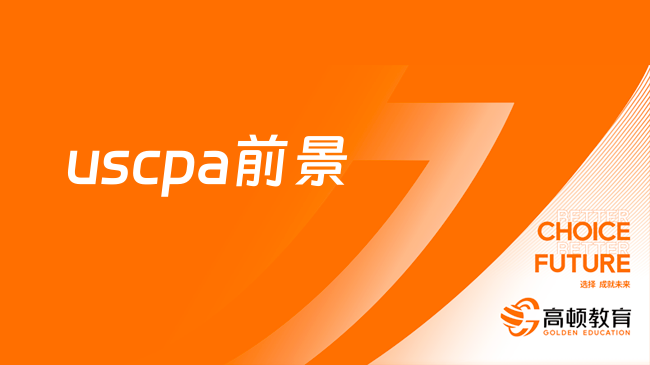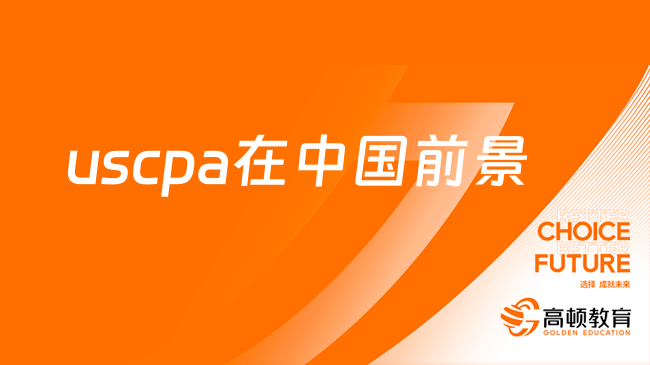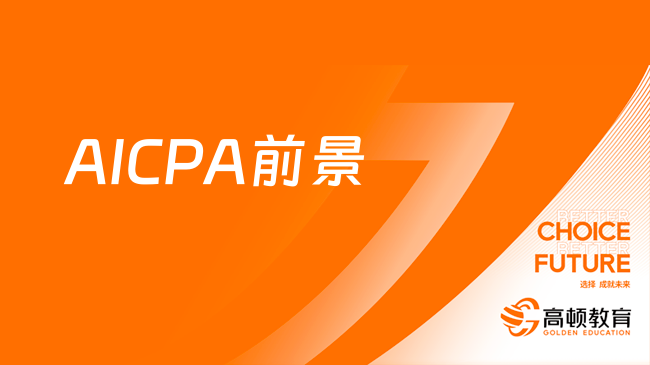How enterprising CPAs can land a coveted finance leadership
来源:
高顿网校
2014-11-19
高顿网校USCPA责任小编今天为各位学员提供以下职业发展相关资讯,仅供参考!
Demand for talented and experienced CPAs is high. As CPAs consider their career paths, many aspire to become a CFO in industry. A limited number of these positions are available, and the competition is intense.
How can candidates best prepare themselves for the CFO role? Here is what some successful CPAs who have attained the position have to say.
SKILLS AND KNOWLEDGE
CPAs with designs on a CFO position need to distinguish themselves with skills that go far beyond the basic foundation of accounting competencies. The significance of these skills varies based on the company’s size and industry, but all of them should be considered in a self-assessment to prepare for a career move. It is important to develop experience in a specialized area or master knowledge of a subject that makes you valuable and helps you stand out from the crowd.
Michael Dinkins, CPA, the CFO of Texas-based medical technology manufacturer Greatbatch, said that in choosing a CFO, there are two equally important and necessary parts to the decision—“Can Do” and “Can Fit.” “Can Do” covers the required knowledge, experiences, and strengths a candidate must have to meet the needs of the business. “Can Fit” covers the ability to collaborate, build working relationships, and influence others to get things done.
BUSINESS AND OPERATIONAL EXPERIENCE
If you do not understand the business of the company, you cannot be an effective CFO. One of the most important responsibilities for these leaders is to create and implement company strategies and policies and to define the organization’s future direction. This requires an entrepreneurial perspective about where the organization is and where it is going. Leaders must be able to provide analysis to change behavior. To do this effectively, you must build a collaborative relationship with operational colleagues.
Some CPAs have strong accounting and finance backgrounds but no operational experience. To get it, aspiring CPAs can volunteer for projects outside of finance, take lateral positions in different areas, and seek out and visit others who work in operational areas such as manufacturing and sales. CPAs can broaden their perspectives by asking questions, even if it is uncomfortable; reading contracts from a business perspective; and attending and participating in meetings.
“If you stay in a staff position working with other finance people, that’s a very difficult way to get to a CFO seat,” Dinkins said. “You have to get into the operating positions … and hopefully at a divisional or plant level be responsible for a P&L or portion of one, and show that you have successfully worked with people in that operational environment.”
Valuable relationships also can be developed by educating other departments on how their performance and results become part of the organization’s overall financial results.
PEOPLE SKILLS AND NEGOTIATION
Effectiveness in leadership roles requires being open with other employees. A positive attitude and enthusiasm are essential. Having an executive presence is critical, as you will be dealing with customers and shareholders, bankers and lawyers, partners, and boards of directors. But while it’s important to be able to speak the language of the boardroom, you must also be able to alter your behavior and learn different ways to communicate with all levels of an organization, and to build relationships with people with different levels of education and experience.
Jenine Dalrymple, CPA, CGMA, the CFO at Tucson, Ariz.-based mining contractor Southwest Energy LLC, learned about the business by leaving her office and traveling to the locations where the company’s miners were working. Her background and education were very different from theirs, but she gained their trust by showing a personal interest in what they did and by asking them questions.
“I learned about employees’ problems in the field that I could fix,” she said. “To me, that’s the greatest power of the CFO role. I can make a difference in each of those people’s lives.”
LEADERSHIP SKILLS: CREATIVITY AND COURAGE
To be a CFO, you must be tough and confident. You must be able to make difficult, reasoned decisions and explain complex accounting, financial, and business concepts to others in a way that they can understand. You must be a good storyteller to communicate the story behind the numbers to management or third parties. You must maintain your professional ethics and maintain a CPA’s duty of care to stakeholders, having the courage to know when to draw a line in the sand and not deviate from principles. You need to encourage new ideas rather than just maintain the status quo. CFOs need to go beyond the numbers to be strategic partners to CEOs.
“To me, being a CFO requires creativity, the courage to be tough enough to stand up to people and expect them to do the right thing, and bold enough to tell people when things go wrong,” Dalrymple said.
STRONG PERSONAL VALUES
While pursuing higher positions on the career ladder, it’s important to be true to yourself and not deviate from your values, CPAs say. Getting the job you want can leave you feeling empty if you sacrifice your beliefs to get there. Dalrymple stressed the importance of picking a firm and career that provided flexibility and supported her commitment to family and community. Paul Shillam, CPA, CGMA, controller of Pacific Medical Centers in Seattle, suggested that working well with others in leadership roles requires an understanding of oneself as a starting point.
“First and foremost, be authentic,” he said. “Be yourself. You have to have your own personal set of values. It starts with yourself and understanding what your values are. Then you extend them to the group you are dealing with.”
NETWORKING AND MENTORING
A strong network is critical to career success and advancement. While having a large number of connections can be valuable, successful networking is more than just collecting contacts. It is important to assess your current network and to build quality contacts in targeted areas that can help you attain the role of CFO—in select industries, firms or business associations, geographical areas, or community activities. Shillam described how he located hospital CFOs in his area on an association website and contacted them.
“I started calling up CFOs and asked them for a moment of their time to discuss my career and how they got to where they are today,” he said. “… The first person suggested additional people to talk to. This networking was beneficial in helping me with my career plan.”
Building relationships outside of a usual comfort zone is important for good networking. Some successful people set measurable goals for networking and execute them. For example, they may take someone to lunch once a month, or go to a conference and sit with someone they don’t know and start a conversation. Find a way to relate to new connections, and remember them and make sure they will remember you. You may not realize today who will end up helping you in the future.
Dinkins had been the leader of a due-diligence team for a potential acquisition. Years later, one of the team members who worked for him, who had become an executive recruiter, remembered Dinkins and contacted him to be a candidate for a CFO job, which he ultimately accepted.
“It shows that someone below you may be the person that helps you move up,” he said.
Personal contacts such as spouses, family members, neighbors, and friends, as well as professional mentors, can be part of a network. Mentors may be assigned through human resource programs or may just happen, but the important thing is to have a personal relationship, build trust to get advice, and have someone who will tell you the truth.
NEXT STEPS
As you consider your strengths and areas for improvement against these recommendations, it is important to do a thorough self-analysis of your abilities and talents. Talk to friends, families, peers, and subordinates to get others’ perspectives. Use performance evaluations. Consider retaining an executive coach. Learn more about what issues are important to CFOs today. Attend industry conferences, including conferences offered by the AICPA and state societies, to get exposure to the professionals and industry you are interested in.
Assess what you are passionate about and what defines success for you (beyond compensation)—job content, work/life balance, making a difference, taking responsibility, and building a team. Do not get hung up on job titles, but instead choose a job for the right reason.
No matter what steps you take in your career search, there is always an element of luck involved. Be open to opportunities presented at all times and always have your “antenna up.” Do not underestimate the value that you bring to an organization as a CPA, based on your experiences and credentials. If you continue to develop your professional strengths and play to them, you are likely to create career opportunities for yourself.
小编寄语:梦想不知道在哪里,但你要一直在路上。
来源:AICPA China

扫一扫微信,*9时间获取USCPA考试时间提醒,体验全新备考方式
高顿网校特别提醒:已经报名2014年USCPA 考试的考生可按照复习计划有效进行!另外,高顿网校2013年USCPA考试辅导高清课程已经开通,通过针对性地讲解、训练、答疑、模考,对学习过程进行全程跟踪、分析、指导,可以帮助考生全面提升备考效果。
报考指南:2014年USCPA报考指南
考前冲刺:USCPA 考试试题 考试辅导
高清网课:USCPA网络课程
报考指南:2014年USCPA报考指南
考前冲刺:USCPA 考试试题 考试辅导
高清网课:USCPA网络课程
版权声明:本条内容自发布之日起,有效期为一个月。凡本网站注明“来源高顿教育”或“来源高顿网校”或“来源高顿”的所有作品,均为本网站合法拥有版权的作品,未经本网站授权,任何媒体、网站、个人不得转载、链接、转帖或以其他方式使用。
经本网站合法授权的,应在授权范围内使用,且使用时必须注明“来源高顿教育”或“来源高顿网校”或“来源高顿”,并不得对作品中出现的“高顿”字样进行删减、替换等。违反上述声明者,本网站将依法追究其法律责任。
本网站的部分资料转载自互联网,均尽力标明作者和出处。本网站转载的目的在于传递更多信息,并不意味着赞同其观点或证实其描述,本网站不对其真实性负责。
如您认为本网站刊载作品涉及版权等问题,请与本网站联系(邮箱fawu@gaodun.com,电话:021-31587497),本网站核实确认后会尽快予以处理。
在线咨询热销
专业老师服务 限时优惠
点一下领资料
USCPA教材试读-REG
真题高频考点,刷题全靠这份资料
下载合集
USCPA-REG学习思维导图
梳理核心考点,一图看懂全部章节
下载合集
USCPA考试公式大全
突破计算瓶颈,节省考试时间
下载合集
USCPA备考 热门问题解答
- 美国注会考试考多少分及格?
-
uscpa一共有四门科目,每门考试的满分为99分,75分及格,但是这个75不是75%的正确率,不能被理解为百分比。
- uscpa一共几门几年考完?
-
uscpa总共考4门,一般单科成绩的有效期为18个月,大家需要在这个有效期的时间内,通过剩余的三门科目,否则第一门通过的考试成绩就作废,需要重考。因此,uscpa考试周期最长为18个月。
- uscpa一年能考几次?
-
NASBA和AICPA开启了连续测试期后,大家可以不受限制的全年参加uscpa考试。在uscpa的考试成绩公布后,如果大家发现自己没有通过考试,能够马上申请并参加该门科目考试,也不用再等待下一个考季才能申请重考。
- uscpa的含金量如何?
-
uscpa是美国正式的注册会计师国家资格,在美国拥有审计签字权,作为美国财经领域的三大黄金证书之一,在国内外都有着很好的知名度。很多外企招聘财务经理或财务总监岗位,都将持有uscpa证书作为优先录用条件。
严选名师 全流程服务
其他人还搜了
热门推荐
-
得克萨斯州uscpa考了前景怎么样?报考流程是怎样的? 2023-10-30
-
考爱达荷州uscpa就业前景如何?报名流程是什么? 2023-10-27
-
弗洛里达州uscpa考了能做什么工作?这几点一定要知道! 2023-10-26
-
阿肯色州uscpa考了就业前景如何?一文告诉你答案! 2023-10-26
-
关岛uscpa考了就业方向有哪些?一文帮你搞清楚! 2023-10-26
-
阿拉巴马州uscpa考了可以做什么职业?一文详细科普! 2023-10-26
-
乔治亚州uscpa考了就业前景如何?看完你就知道了! 2023-10-26
-
华盛顿州uscpa考了能做什么工作?看完你就知道了! 2023-10-25
-
科罗拉多州uscpa考了可以做什么职业?本文详细科普! 2023-10-25
-
夏威夷州uscpa考了就业方向有哪些?速戳了解! 2023-10-25
-
蒙大拿州uscpa考了就业前景如何?这几点一定要知道! 2023-10-25
-
爱达荷州uscpa考了可以做什么职业?看完你就知道了! 2023-10-25
-
密歇根州uscpa考了就业方向有哪些?一文告诉你答案! 2023-10-25
-
内华达州uscpa考了能做什么工作?这几点一定要知道! 2023-10-25
-
新墨西哥州uscpa考了能做什么工作?不清楚的来看! 2023-10-25
-
新墨西哥州uscpa考了能做什么工作?不清楚的来看! 2023-10-25
-
俄勒冈州uscpa考了就业前景如何?一文详细科普! 2023-10-25
-
怀俄明州uscpa考了就业方向有哪些?速戳了解! 2023-10-25
-
加利福尼亚州uscpa考了就业方向有哪些?点击详细了解! 2023-10-25
-
得克萨斯州uscpa考了就业前景如何?点击查看详情 2023-10-25
-
犹他州uscpa考了就业前景如何?考生们码住了! 2023-10-25
-
2024年USCPA怎么报名?就业方向有哪些? 2023-09-30
-
美国注册会计师年薪高吗?就业方向有哪些? 2023-09-29
-
2024年uscpa在中国前景好吗?一起来看看吧 2023-09-25
-
报考须知:2024年uscpa在中国前景如何? 2023-09-24
-
AICPA前景如何?考了能做什么职位? 2023-09-10
-
美国CPA职业前景如何?考了能进四大吗? 2023-09-08
-
AICPA在国内有前景吗?考了有补贴吗? 2023-09-07
-
AICPA前景如何?和CMA相比考哪个更好? 2023-09-04
-
AICPA前景怎么样?考了能做什么工作? 2023-09-01
 更多服务
更多服务




















